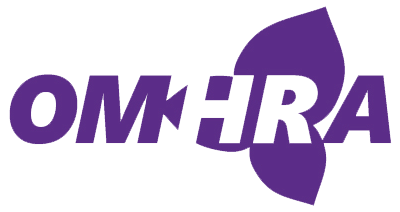
Loyal employees can be essential to the long-term success of any business. They’re usually engaged with your company, their colleagues and their work and are motivated to see your business grow and prosper. Yet, 85% of employees worldwide do not feel engaged in the workplace and that’s a problem.
Disengaged employees may not deliver the same standard of excellence as those who are highly motivated and can be damaging to customer relationships. They’re also much more likely to be hunting for a new job. Although it’s tempting to think that shedding disengaged employees from your company will lead to an improvement in company performance, this isn’t necessarily true.
Employee turnover is costly, both financially and culturally. Lost productivity, subsequent recruitment initiatives, and other inefficiencies and expenditures related to turnover total an average of $41,000 per year, though this can range significantly based on the size and specific circumstances of the business. High turnover can also add additional stress on your remaining employees as their workloads increase and company culture declines.
In contrast, when employee turnover is low, it can have a positive impact on company culture. Workers can get to know one another, and they can establish a great operational workflow that can help increase productivity and efficiency that a constant turnover of staff would make difficult to achieve.
Implementing resources and incentives to empower productivity can make all the difference; as research has shown that employees who are happier are 12% more productive and productivity has been shown to be 14% higher among engaged teams. Here are some top tips to help you drive employee loyalty within your business so that you can maintain a strong and productive team.
Hire the Right Talent.
It’s important to find employees who share the same values as your business. When your employees feel like they are a key part of a company-wide vision that’s aligned with their personal outlook, they can be more determined to help the company succeed. They may also be more likely to remain working for your business.
When recruiting, be clear about what your company values are, and why they’re an important part of your organization’s success. This will give potential candidates the opportunity to assess whether or not they’re a good fit for your culture. During the interview process, ask questions that allow candidates to demonstrate how they would respond to hypothetical situations in order to determine if they’re a good fit. Consider if they would easily integrate into your existing workforce and company culture. You want to hire individuals who will enhance your existing team, not disrupt it
Set Realistic Goals.
Goal setting is an important aspect of any business. It’s what keeps your team motivated and inspired to continue working hard. Establishing team goals also helps to build a strong company culture where every employee is working to achieve the same targets.
Individual goals that are transparent, shared and clearly ladder up to company-wide objectives can be easier to action on and more motivating to fulfill. Secondly, ensure that your employees play a role in setting their work goals. This allows each employee to think realistically and strategically about the jobs they do and how they contribute to the overall success of your company. Employees who feel that their work is valuable can be more likely to be engaged and meaningful members of their teams.
Provide Incentives and Rewards.
Employees who feel appreciated by their employer and see that their hard work is recognized can be more likely to remain loyal to the company they work for, and may be more likely to succeed within their roles. Showing gratitude, saying thank you, and offering benefits to those who are displaying hard work is important to boost employee loyalty.
While businesses search for employee loyalty, it’s equally important to show loyalty to employees. One way to do this is by investing in programs that can help support the health and wellbeing of your workforce. By providing your workforce with tools to be the best version of themselves, you can help instill trust and foster a thriving work culture.
Learn how TELUS Health Wellbeing can help move the wellness needle and support employee engagement in your organization.
Presented by

Archives
Categories
- Attraction and Recruitment
- Benefits
- Celebrating Success and Recognition
- Change Management
- Coaching and Conflict Resolution
- Culture
- Diversity, Equity and Inclusion
- Emotional Intelligence
- Employee Engagement
- Employee Performance
- Labour Disruption
- Mentoring
- OMHRA activities
- OMHRA Events
- Psychological health and safety of the HR professional
- Recruitment
- Recruitment and Retention
- Retention
- Uncategorized
- Unique ideas for recruiting in a tight job market
- Wellness
Recent Posts
- How Leadership Development Coaching Provides Better Outcomes
- Better Leadership: Focus on a Coach Approach
- Creating a Psychologically Safe Workplace
- Group Health Insurance – The Impact of Preferred Pharmacy Networks on Employees’ Mental Health
- Provide Real Support For Your Mid-Career Team’s Psychological Resilience
